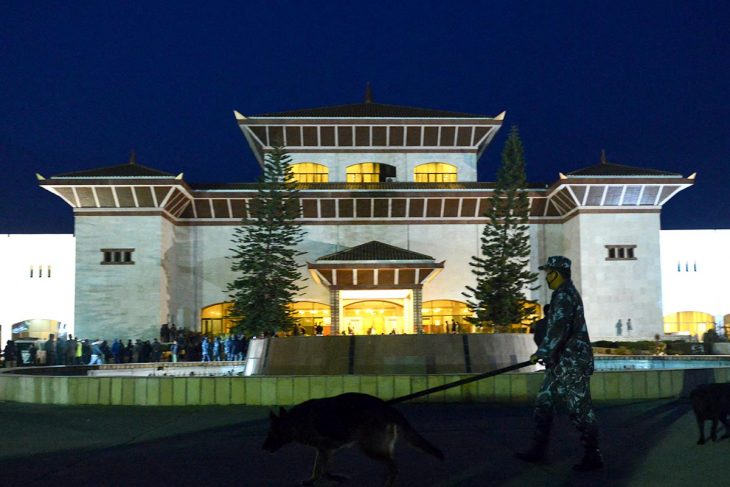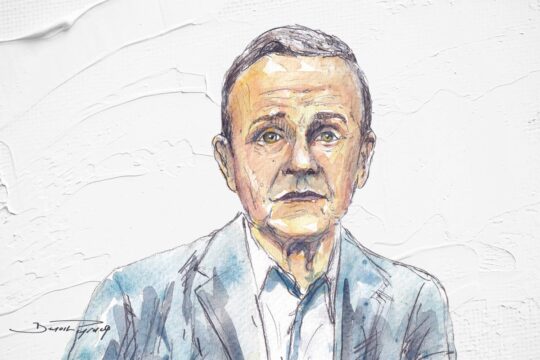In the wake of the 1996-2006 civil war between the government and Maoist rebels that ended with the Comprehensive Peace Agreement (CPA), a Commission of Investigation on Enforced Disappeared Persons (CIEDP) and Truth and Reconciliation Commission (TRC) were finally set up in 2014 and 2015 in Nepal. The war left at least 15,000 people dead and some 1,300 disappeared. Abuses, including torture and sexual violence, were committed on both sides. The two commissions have received over 60,000 complaints.
And yet no hearings have been held, no remains recovered and restored to families under the umbrella of the CIEDP. The commissions’ mandates, originally set for two years, have been extended several times, most recently until July 2021. But victims are still waiting for justice.
“They did collect the complaints, there is this one positive thing,” says Ranjeeta Silwal, Human Rights Coordinator of the Human Rights and Justice Centre (HRJC) in Nepal. “But if you look at what they did with these complaints – nothing!”
A flawed legislation
Silwal believes there is a lack of political will on the part of Nepal’s government, and that the commissions’ mandates are being extended “as a token to show the international community that we have these two commissions that are going to work. But if you come to the ground, the reality is very different. They are doing nothing, especially since 2016.”
NGOs say the TRC Act, the very legislation that set up the two transitional justice commissions, is flawed. Nepal’s Supreme Court ruled in 2015 that the law did need to be amended, including regarding provisions on amnesty which that court said were unconstitutional and contrary to Nepal’s international obligations. But the government has still not done this, despite various proposals. “The provisions that would allow amnesties for persons responsible for crimes under international law and gross human rights violations were the source of special concern, together with the lack of adequate guarantees of independence and impartiality of the two commissions,” say Swiss NGO TRIAL and the HRJC, its partner organisation in Nepal, in an “alternative” report submitted this month to the UN Human Rights Committee in Geneva.
According to them, although the mandates of the two commissions continue to be extended, this is unlikely to produce any meaningful results while “the legislative framework regulating their mandate remains at odds with international law; the process of selection and appointment of the commissioners is not transparent, consultative and impartial; and the commissions are devoid of adequate technical expertise and resources”.
Lack of political will
Asked to comment, Nepal’s permanent mission to the UN in Geneva did not respond. Silwal says the country’s Foreign Minister has previously told the UN Human Rights Council that the government was committed to transitional justice, that there would be no blanket amnesty for serious crimes and that the government was also positive about amending the TRC Act. But she thinks he was just painting a “rosy picture” and denounces the government’s failure to follow up.
Michael Hutt, Emeritus Professor of Nepali and Himalayan Studies at the University of London’s School of Oriental and African Studies (SOAS) agrees that lack of political will is the main problem, given that people active on both sides of the conflict are currently in positions of leadership as well as in the army, and might feel vulnerable to a justice process. And the political culture of patronage doesn’t help, he says. “One can begin as an idealist but it’s hard to remain pure, because you may be obliged to other parties and people in the course of rising to power,” he explains. Although this is a problem in many countries, he said it was particularly prevalent in this part of South Asia.
Earthquake and political rifts
But there are other factors that have hampered transitional justice in Nepal, says Hutt, notably the devastating earthquake and forced rapid conclusion of the constitutional process in 2015, which meant transitional justice was not a priority.
As for the current political climate, it is marked by infighting in the ruling Communist Party, formed from a merger between the Maoists (former rebels) and Marxist-Leninists. When they merged at the end of 2017, Hutt says, it gave the hope of an end to “the endless horse-trading of a minority government” and that the new majority could “get on with business”. But now the two factions look to be splitting again, and politicians will likely not be thinking about transitional justice.
Hope for the future?
The International Center for Transitional Justice (ICTJ), an international NGO that has worked in Nepal since 2007, is also concerned about the slow progress of transitional justice in Nepal, says ICTJ programme expert Elena Naughton who has worked in the country. But she says it is not time to lose hope, rather “the complete and absolute opposite”. She stresses that Nepal’s 2015 Constitution devolved power to the local level, and that local governments have “powers and ability to advance reparations and memorialization”. As noted in ICTJ’s 2018 report “A Time to Lead”, some initiatives have already been taken in communities, such as building memorialization parks and improving direct services for victims.
She also notes that many of Nepal’s politicians are older, and that there is a new generation coming up, especially of women. “When we travelled in Nepal in 2018 we met with deputy mayors, many of whom are younger women,” Naughton says. “That’s where we see hope and opportunity – empowering women and women victims.”
Professor Hutt agrees that most of Nepal’s political elite are currently male and “quite senior in terms of years”. It is true also that there is now more involvement of Nepali women, he says. Local government elections in 2017 saw a huge increase in the number of women elected, thanks to more emphasis on gender as well as ethnic equality.
But there is a caveat, he warns, in that while most deputy-mayors are women, the mayors are still men. And many of the women were elected through the proportional representation rather than first-past-the post system. They are often regarded as second-class, he says, because they benefitted from quotas. “Maybe the new federal structure will produce a new generation of leaders and activists more committed to transitional justice,” says Hutt, who wants to remain optimistic.






